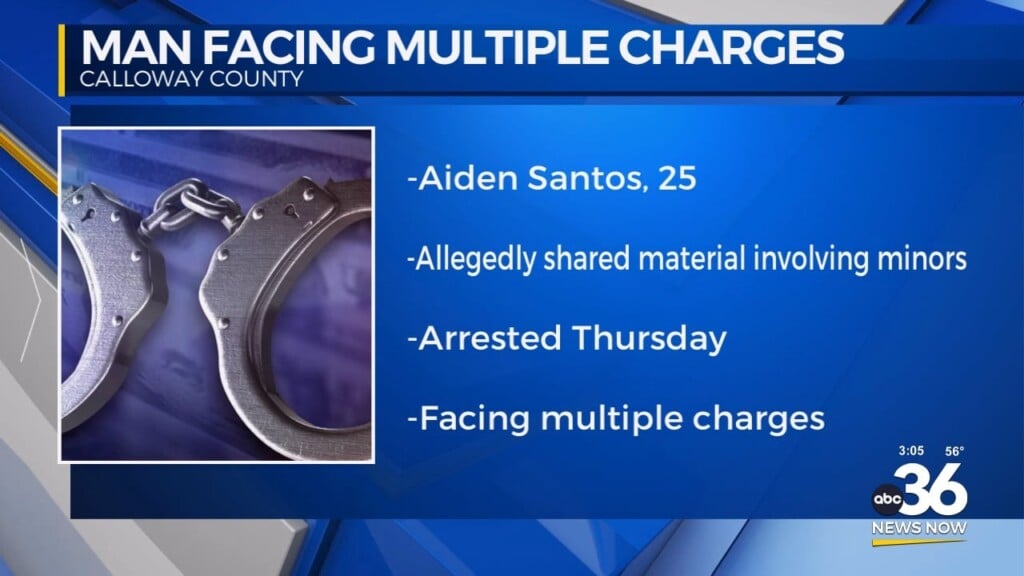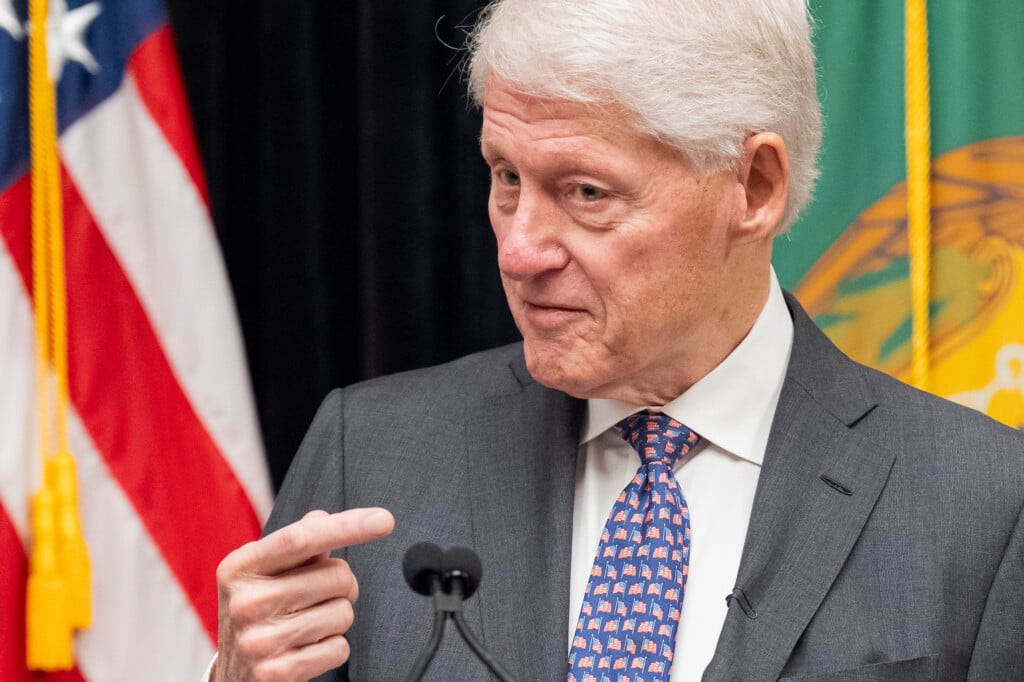Child abuse, workforce needs, porch piracy among measures approved
House tells school boards how to handle their meetings
FRANKFORT, Ky. (WTVQ) – From legislation strengthen child abuse laws to measuress telling school boards they have to have a public comment, the state House and Senate continued their work Wednesday.
Five bills passed the Senate chamber , including Senate Bill (SB) 8, priority legislation to comprehensively strengthen efforts to prevent child abuse and neglect. Other bills passed were expungement legislation (SB 33), a bill removing obsolete high school graduation requirements (SB 61), a measure expanding scholarship opportunities to students with intellectual disabilities (SB 94) and a bill related to mail theft (SB 23).SB 8, sponsored by Senate Majority Caucus Chair Julie Raque Adams (R-Louisville), passed favorably from the Senate Health and Welfare Committee last week during Child Advocacy Week.
Notably, this bill expands the opportunity for family preservation services to keep children safe and families together. Among other provisions of the bills are:
- Providing additional resources and support for Kentucky’s child advocacy centers.
- Expanding the scope and membership of the Child Sexual Abuse and Exploitation Prevention Board to now include all forms of child abuse and neglect.
- Distinguishing between poverty and neglect.
- Updating the Foster Youth Bill of Rights by enabling those aging out of foster care to maintain access to resources while transitioning into adult life.
Passage of SB 8 in the Senate follows a recent report that Kentucky has led the nation three years in a row in rates of child abuse and neglect, in addition to coverage from the Kentucky Center for Investigative Journalism about the backlog of cases regarding suspicious child deaths.
“Today is one step closer to protecting our most vulnerable,” Adams said. “I implore the state House to give this measure the attention it deserves.”
SB 8 will impact children across the child welfare continuum – from child maltreatment prevention to investigation to healing and foster care. This legislation will create a uniform definition of child abuse and neglect, establish new membership of the State Child Abuse and Neglect Prevention Board, ensure victims of child maltreatment have access to critical medical examinations, broaden the definition of fictive kin, expand opportunities for youth aging out of foster care, and more, said Dr. Terry Brooks, executive director of Kentucky Youth Advocates.
“Across the Commonwealth, too many children are victims of child abuse or neglect each year. When children have experienced — or are at risk of experiencing — abuse or neglect, they need policy and programs that target prevention and seek to safely keep families together. When child abuse or neglect occurs, children need access to the best care in order to heal. SB 8 serves as a next step in Kentucky’s efforts to fundamentally strengthen and reform the child welfare system. This legislation can be even stronger by expanding Medicaid reimbursement eligibility for qualified medical providers who perform forensic services for children experiencing child maltreatment in Emergency Departments and specialty clinics, like the Departments of Pediatric Forensic Medicine at the University of Kentucky and University of Louisville,” Brooks said.
On so-called porch pirates, SB 23, sponsored by Sen. David Yates (D-Louisville), would update Kentucky’s mail theft statute, which currently only covers packages delivered by the United States Postal Service. If enacted, the bill would put packages delivered by common carriers such as UPS and FedEx under that same legal umbrella, making ‘porch pirates’ susceptible to felony criminal charges.
SB 33 continues Kentucky’s efforts to address workforce needs by enabling people convicted of misdemeanors, having paid their debt to society, to become productive members once again. It clarifies when a misdemeanor offense may qualify for expungement. Existing law does not provide for expungement of a crime for misdemeanors that do not have an expiration date, or the crime qualifies for additional penalties on an indefinite basis.
Under existing law, a person convicted of a misdemeanor or violation, or a series of convictions arising from a single incident, can petition the court to expunge their record. Sex offenses or offenses committed against a child do not qualify for expungement.
“The primary reason for doing this is for more opportunities to address the state’s workforce needs and better allow people to become productive members of society,” bill sponsor Sen. Jimmy Higdon (R-Lebanon) said. “There are approximately 180 misdemeanors right now that do not qualify for expungement. That means many people out there have changed for the better but still carry with them a record that’s not reflective of who they are today. This overdue reform of our expungement laws is a way for us to help others to help themselves, and in turn, help our state.”
Some examples of enhanceable misdemeanors that cannot be expunged include spitting in a food establishment and buying or selling eggs or milk without a license.
SB 61, sponsored by Senate Education Committee Chair Max Wise (R-Campbellsville), was a simple clean-up bill that enjoyed unanimous support. It modernizes statutory requirements for early high school graduation by eliminating the requirement for benchmarks on end-of-course exams, references to ACT benchmarks and requiring early high school graduation requirements and future revisions established in administrative regulations made by the Kentucky Board of Education.
SB 94, sponsored by Sen. Danny Carroll (R-Benton), expands the Work Ready Kentucky Scholarships (WRKS) to Kentucky students with special needs.
“Kentucky students with special needs play a vital role in addressing the state’s workforce needs,” Carroll said. “They are strong and capable individuals who are deserving of opportunities that the scholarship can provide.”
The bill helps those Kentuckians who have not yet earned an associate degree afford an industry-recognized certificate or diploma that is currently only available to college students and high school students enrolled in college coursework. The WKRS offers students with intellectual disabilities enrolled in a comprehensive transition and postsecondary program access to meaningful credentials in preparation for competitive integrated employment and customized programs of study made available that lead to a credential, certificate, diploma or degree.
The state House of Representatives will now consider the bills.
The Senate Health and Welfare Committee approved a measure Wednesday – Senate Bill 97 – that would help strengthen cases against child abusers in the event of suspicious deaths and serious injuries.
In such cases, the bill would require police to request a blood, breath or urine test from the child’s custodian if that person is suspected of being under the influence of alcohol or drugs. If the custodian does not consent to the test, and authorities have probable cause, they could issue a search warrant.
The measure was approved by an 11-0 vote and now heads to the full Senate.
The bill’s sponsor, Sen Danny Carroll, R-Benton, said an important goal of the legislation is boosting the Kentucky Child Fatality and Near Fatality External Review Panel, a 20-member team that reviews records and procedures related to child abuse investigations. The panel periodically offers recommendations to improve Kentucky’s systematic response to child abuse.
“I can’t think of any other panel that we establish in the commonwealth that’s any more important than this,” he said. “As an investigator having these levels of expertise reviewing cases, it can be invaluable in the way we conduct training.”
SB 97 would also require coroners to immediately notify law enforcement, the state Department for Community Based Services and the local health department immediately following the death of a child.
“These cases are some of the most difficult cases that an investigator would work, and the availability of evidence is crucial to the success in any prosecution,” Carroll said. “If it’s two days later, if a child’s body has been removed without a detective working the scene, obtaining the evidence, it could have a major impact on any prosecution.”
Another main component of the bill would require the review panel to determine which state agency is responsible for implementing its recommendations. Any agency that receives a recommendation must provide a written explanation of how it will implement the changes or why the recommendation cannot be implemented.
Steve Shannon, Executive Director of the Kentucky Association of Regional Programs Inc. (KARP), which represents community mental health centers throughout the commonwealth, testified during the meeting.
He said the review panel’s work is not always easy due to the severity of information in the cases. Individuals from varying disciplines, including state police, lawyers, judges, mental health professionals and others, serve on the team.
It looked at 200 cases last year, and Shannon hopes the panel will drastically improve the prevention of child abuse.
“The motivation is to identify trends, data, what can we use moving forward to maybe address some problems,” he said. “We’re hoping at some point this becomes a preventative strategy and we make things better for kids, make them safer for kids.”
The House passed legislation aimed at giving parents more access and input in their children’s education. Sponsored by Representative Regina Huff, HB 121 requires local school boards to set aside time for public comments during meetings.
Huff’s legislation seeks to shore up the state’s education law which currently allows boards of education to curtail public comments at their meetings. The bill ensures that at least 15 minutes—or until comments end—at each meeting is open for community members to provide input. The requirement can be passed over if there are no requests to participate by the start of the comment period.




Leave a Reply